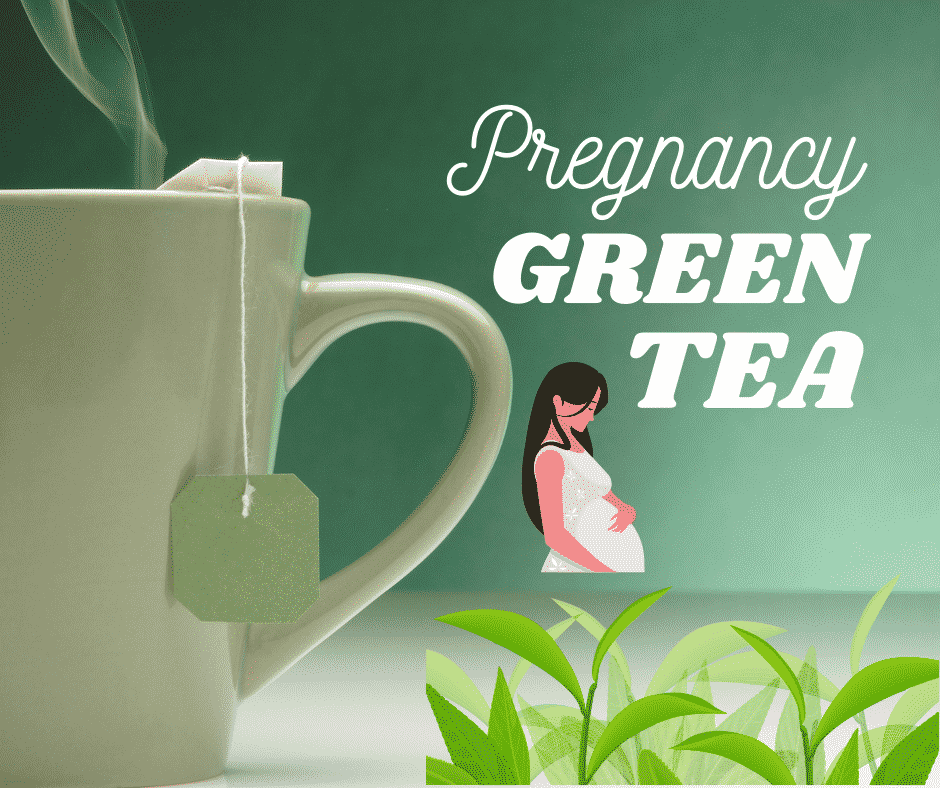Green Tea During Pregnancy: Is it safe while pregnant?
Published on April 30, 2022 – Last Updated on April 30, 2022
Pregnant women often ask themselves if it is safe to drink green tea while pregnant. Unfortunately, the answer is both yes and no. While green tea contains antioxidants that are beneficial for both mother and baby, it also contains caffeine. Too much caffeine can be harmful to a developing baby, so drinking green tea in moderation during pregnancy is important. Here we will explore the pros and cons of drinking green tea during pregnancy and offer tips on enjoying this healthy beverage safely while pregnant.
Drink Green Tea
When it comes to pregnancy, there are many important things to consider. One of the most important is your health, both for yourself and your growing baby. That’s why experts recommend drinking green tea during pregnancy. Green tea is packed with powerful nutrients like antioxidants and minerals that can help boost your immune system and support healthy fetal development. In addition, drinking green tea has been shown to reduce the risk of gestational diabetes, one of the most common complications of pregnancy.
With so many benefits, it’s no wonder that so many moms-to-be choose to sip on a cup or two of delicious green tea every day. So why not join them and enjoy all the excellent health advantages of this soothing and refreshing beverage? Your body and your baby will thank you!
Health Benefits of green tea during pregnancy
In recent years, there has been a lot of buzz around the health benefits of green tea, with many people touting its ability to reduce inflammation and boost overall wellbeing. So it comes as no surprise that this popular beverage is also becoming increasingly popular among expectant women. Indeed, clinical studies show that incorporating green tea into your diet during pregnancy can positively affect both mom and baby.
For example, some research has found that a cup of green tea may help to reduce the risk of pre-term birth and low birth weight. Additionally, it has been shown to increase levels of antioxidants in the body, which can boost immunity and improve cognitive functioning. Thus if you’re pregnant or planning to become pregnant, adding a little green tea to your daily routine could have tremendous benefits for you and your child.
🤰More on pregnancy:
- Can you drink soda while breastfeeding?
- Fish Oil During Pregnancy
- Can I drink decaf coffee while pregnant
- Can pregnant women drink coffee
- Coffee While Breastfeeding
- Can you drink coffee while pregnant?
- Orange juice during pregnancy
- Can you drink liquid iv while pregnant
- How much water should a pregnant woman drink
- Drinking Matcha during pregnancy
Is green tea safe for pregnant women?
Yes, green tea is safe for pregnant women. It’s packed with antioxidants and nutrients that are beneficial for both mother and baby. In addition, expectant women can safely drink up to four cups of green tea per day without worrying about any adverse effects. So go ahead and enjoy a cup or two of delicious green tea during your pregnancy!
However, it is essential to remember that green tea contains caffeine. Too much caffeine can be harmful to a developing baby, so moms-to-be should limit their intake of green tea to no more than four cups per day. Additionally, it is best to avoid green tea during the first trimester, when the risk of miscarriage is highest.
What is Epigallocatechin in green tea?
Epigallocatechin gallate, or EGCG, is the main catechin found in green tea. It’s a powerful antioxidant that has been linked to a number of benefits, including weight loss, cancer prevention, and improved heart health.
EGCG is thought to be responsible for many of the benefits of green tea. It’s a powerful antioxidant that scavenges harmful free radicals, damaging cells and leading to disease.
Green tea has been shown to boost weight loss by increasing metabolism and fat burning. For example, one study showed that EGCG combined with caffeine increased calorie burning by 4% over 24 hours.
EGCG is also being studied as a potential cancer-prevention agent. Laboratory and animal studies have shown that it can kill cancer cells and prevent them from spreading. It’s also been shown to reduce the growth of new blood vessels in tumors.
How much is green tea safe for expectant women?
While all types of tea contain some level of caffeine, organic green tea tends to have higher concentrations than black or oolong teas. Because of this, expectant women are often advised to limit their consumption of green tea, mainly if it is extracted or prepared with added spices or sweeteners. However, research has indicated that moderate amounts of standard green tea are generally safe for expectant women. The caffeine content is lower than that found in coffee and other caffeinated beverages.
Some studies have even suggested that other teas may benefit expectant women by promoting better immunity and reducing the risk of developing high blood pressure. Therefore, while it is essential to be mindful of excessive caffeine intake while pregnant, a cup or two of herbal tea per day is generally considered safe and healthy.
How much caffeine does green tea contain?
There is no doubt that many of us rely on caffeine to help us power through our busy days. Whether it is coffee, tea, or energy drinks, caffeine has become a staple in our modern society. But what many people don’t realize is that the amount of caffeine we consume daily can have negative health effects, especially if we are not getting enough sleep or eating a balanced diet.
One particular type of tea that can be a healthier alternative is green tea extracts. Compared to other caffeinated drinks like coffee, green tea has less overall caffeine and also provides many beneficial nutrients and antioxidants. Additionally, it is possible to purchase decaf green tea or decaffeinated green tea products, further reducing overall caffeine intake and helping you achieve your health goals. So if you are looking for a more natural way to get less caffeine, consider switching to green tea today!
Risks of drinking green tea while pregnant
While drinking green tea has many health benefits, it is not advisable to consume this beverage during pregnancy. This is because green tea contains certain compounds that may interfere with folic acid absorption in the body, which is crucial for the healthy development of the fetus during early pregnancy.
Additionally, some research suggests that soft drinks can lead to a higher risk of miscarriage, and therefore replacing green tea with other beverages may be advisable. Ultimately, it is best to consult your healthcare provider before consuming any type of beverage during pregnancy. There may be other risks associated with consuming green tea that we are still unaware of.
Which tea is good for pregnancy nausea?
One type of tea has shown particular promise for reducing nausea and vomiting in expectant mothers: ginger tea. Studies have shown that this herb contains powerful antiemetic properties, which means that it effectively combats feelings of sickness and uneasiness. Furthermore, ginger also has calming effects on the stomach, helping to soothe digestion and prevent further nausea. Whether consumed as a hot or iced beverage, ginger tea is an excellent choice for anyone looking for a natural way to fight pregnancy nausea.
Other Herbal Teas for Pregnancy
Many different kinds of herbal teas can be beneficial to pregnant women. Some, like raspberry leaf tea, are known for helping to strengthen the uterus and preparing the body for easy labor and delivery. Like ginger tea and peppermint tea, other teas can help relieve morning sickness and other pregnancy-related symptoms.
Furthermore, many herbal teas have antioxidant properties that protect against infections and illnesses affecting pregnant women. So whether you’re looking for relief from nausea or a natural way to strengthen your body’s defenses during pregnancy, there is an herbal tea that’s right for you. So why not try some today and see what a difference they can make? After all, they’re safe to drink during pregnancy – so why not reap the benefits?







